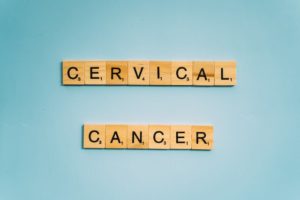What is it?
 Cervical cancer is a type of cancer that occurs in the cells of the cervix which is the lower part of the uterus that connects to the vagina. Cervical cancer is the 3rd most common cancer among women aged between 35 to 44 years old in Malaysia. Cervical cancer can be prevented and it happens to be one of the most preventable cancers.
Cervical cancer is a type of cancer that occurs in the cells of the cervix which is the lower part of the uterus that connects to the vagina. Cervical cancer is the 3rd most common cancer among women aged between 35 to 44 years old in Malaysia. Cervical cancer can be prevented and it happens to be one of the most preventable cancers.
Who can get cervical cancer?
Anyone with a cervix is at risk for cervical cancer. It occurs more often in people over age 30. Women smokers, have multiple sexual partners, experienced an STI (sexually transmitted disease), have multiple children, or have previously been diagnosed with cancer in other parts of the body are among the group at risk of developing cervical cancer.
Long-lasting (persistent) infection with high-risk types of human papillomavirus (HPV) is the main cause of cervical cancer. HPV is a common virus that is passed from one person to another during sexual intercourse.
What are the symptoms?
The warning signs that you should not ignore:
- itchy or burning sensation in the vagina
- experience pain during intercourse
- unusual vaginal bleeding between periods
- vaginal discharge that is watery, has a strong odor and contains blood
- pelvic pain
It is important to get a consultation with health practitioners if the symptoms change or do not feel normal on you. Ignoring symptoms may delay the treatment and make it less effective.

What are the treatment options?
The treatment depends on several factors such as; the stage of cancer, overall health, and patient preferences. The treatment plan will include information about the cancer, goals of treatment, treatment options, possible side effects, and expected length of treatment.
There are different types of treatment available for cervical cancer.
- Surgery – doctors remove cancer tissue in an operation
- Chemotherapy – using special medicines to shrink or kill cancer. The drugs can be pills you take or medicines given in your veins, or sometimes both
- Radiation – using high-energy rays (similar to X-rays) to kill cancer.
Post treatment/surgery care
Most women feel fine after having treatment for abnormal cervical cells but some may feel unwell and need to go home and rest.
Most doctors would recommend that women treated for cervical cancer should keep getting regular Pap smear tests no matter how they were treated (surgery or radiation).
There are a few steps that can be taken to help maintain good health for cervical cancer.
- Maintain a healthy weight
- Keep physically activeand limit the time you spend sitting or lying down
- Follow a healthy eating pattern that includes plenty of fruits, vegetables, and whole grains
- Limits or avoids red and processed meats, sugary drinks, and highly processed foods
- Avoid alcohol
Preventive measures
Prevention is better than cure! Women are encouraged to seek cervical cancer screening as part of their healthcare routine.
Cervical cancer found at the early stage is usually easier to treat than by the time cervical cancer begins to spread.
Two types of cervical cancer screening:
HPV Test
A laboratory test in which cells are tested for DNA or RNA from certain types of human papillomavirus (HPV) that can cause cervical cancer.
Pap Smear
A Pap Smear test collects cervical cells and can also detect changes in your cervical cells that may halt the possible development of cervical cancer in the future. A Pap test also sometimes finds conditions that are not cancer, such as infection or inflammation.
This article is written by Dr Roslan Ridzuan, an Obstetrician & Gynaecologist working at KPJ Perdana Specialist Hospital.
